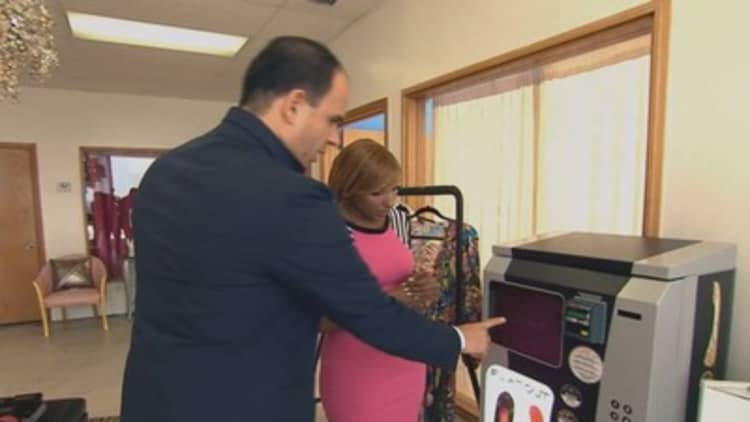
Flat Out of Heels sells rollable ballet flats for women. CEO Dawn Dickson launched the Miami-based company in 2012, and the product has been selling like crazy ever since. She even started a second company to build vending machines to sell them.
Demand was high, but Dickson didn't have the money to keep the shoes in stock.
"I can sell out my product," she said. "I just need to have it on hand all the time. That's a tough pill to swallow, when the reason you're not making money is because you don't have the product."
Read MoreWhen raising prices is good business
After receiving several large orders, including one for 10,000 pairs, she began desperately searching for funding. Eventually, she received what seemed like an impressive offer -- a large retail company wanted to buy the brand.
Dickson would have stayed on as CEO for two years, as well as, retaining the vending machine company, and she still would have been able to sell her own shoes.
"It seemed like a great opportunity for Flat Out to grow as a brand and receive all the capital that it needs to grow," Dickson said. But Marcus Lemonis of CNBC's "The Profit" said she had the energy and passion to stay at the helm. He advised her not to sell the company, no matter how badly she needed the cash.
"I don't want you selling this thing, because this could be the next greatest idea," he said. "Anybody that wants to buy it out smells what I smell, which is success. I don't want you giving up."
She took his advice and decided to keep the company, but money was still very much a factor. He asked her how much of it she would need to keep the business growing.
"I'm looking for $1.5 million for both of the businesses together," she said. "They go hand in hand." Be that as it may, he advised her to keep the companies separate when pitching to investors.
"You may turn somebody off with one or the other," he said. "If they choose to invest in both, that's their right. You want to give the investor the right to choose."
Read MoreJargon that everyone should stop using
Lemonis added that Dickson should choose wisely as well, and only take money from an investor who could open a door to business that she couldn't open on her own. She was also advised against asking for $1 million for the shoe line, as the mere mention of that dollar figure had the potential to make her equity go down significantly.
Armed with that insight, Dickson is currently searching for the right type of investor for her company.
Follow The Profit's Marcus Lemonis on Twitter: @marcuslemonis




